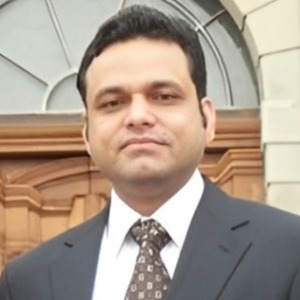Title : Next generation waste management of oilfield produced water via desalination and solid waste utilization
Abstract:
Produced formation water (PFW) from mature oil reservoirs presents significant environmental and operational challenges due to its high salinity, elevated total dissolved solids (TDS), and complex contaminants. Conventional disposal methods, such as reinjection or subsurface disposal, are costly, risk formation damage, and miss opportunities for resource recovery. This study introduces a zero liquid discharge (ZLD) approach that integrates reverse osmosis (RO) desalination with solid waste utilization, transforming PFW into reusable water and marketable construction materials, advancing next-generation waste management.
Oil India Limited piloted this ZLD system in Assam’s landlocked oilfields (Dibrugarh and Tinsukia districts) at a capacity of 2 m³/hr, processing effluent treatment plant (ETP)-treated PFW. The process employs pre-filtration to prevent membrane fouling, followed by a two-stage RO system with the reject in series: low-pressure RO (LPRO) at 40 bar and high-pressure RO (HPRO) at 75 bar. The HPRO reject undergoes thermal concentration via an electric waste heat evaporator and an agitated thin film dryer, achieving 99.975% water recovery with minimal vapor loss of 0.2%. The desalinated water complied to all 21 parameters of India’s Environment (Protection) Act, 1986, enabling safe inland discharge, as well as industrial/agricultural reuse. The process yielded solid extract primarily halite (NaCl, 54.3%) and natrite (Na2CO3, 39.0%), with traces of gypsum and calcite. To overcome disposal challenges, research explored utilization, inspired by fly ash applications in construction. Laboratory trials to create prototypes showed promising results to meet parameters of Bureau of Indian Standards (BIS), confirming prospective application in construction.
This ZLD model minimizes environmental impact, recovers valuable resources, and aligns with global sustainability goals. Scalable for onshore and offshore applications, where desalinated water supports platform reuse and solids eliminate marine brine discharge, it offers a replicable framework for the energy sector. Despite PFW variability requiring site-specific adaptations, this approach demonstrates universal potential for transforming waste into valuable assets, reducing freshwater demand, and mitigating pollution.



